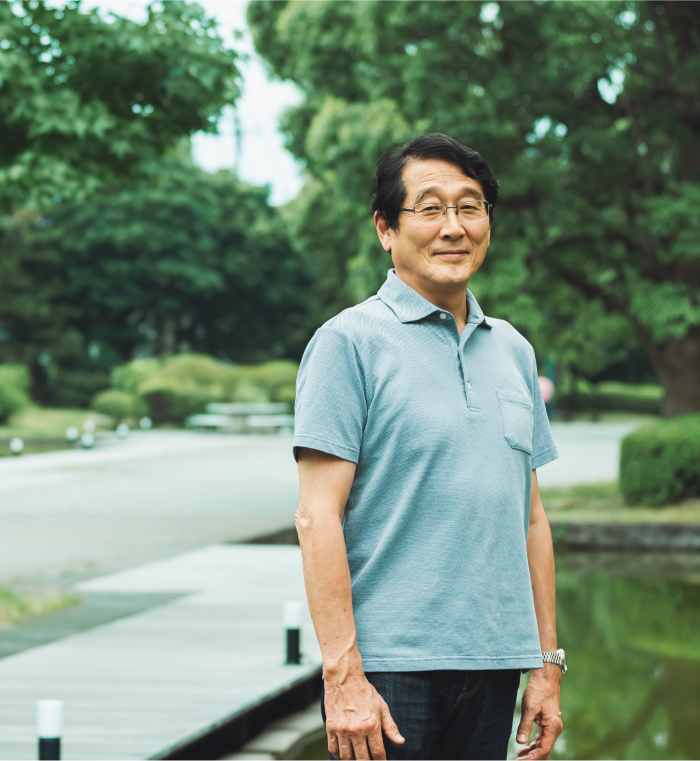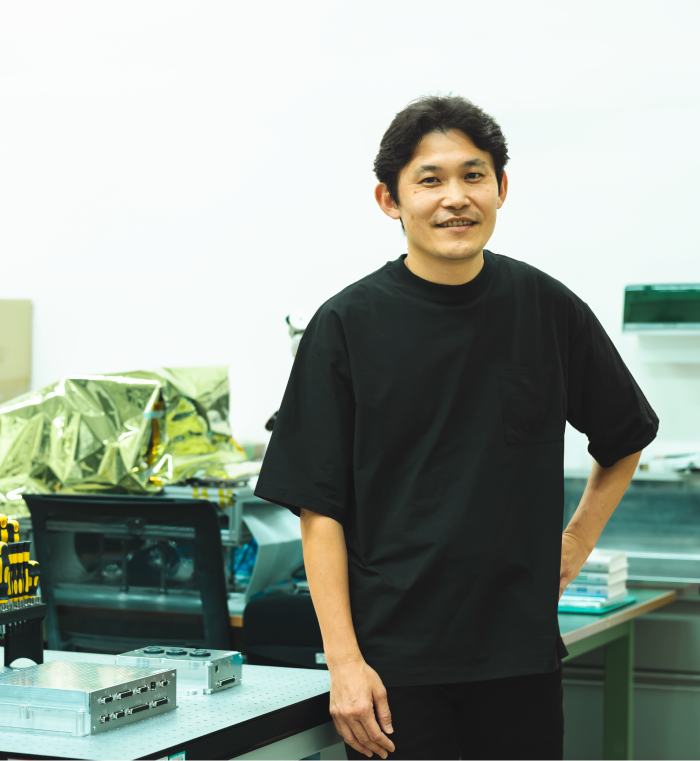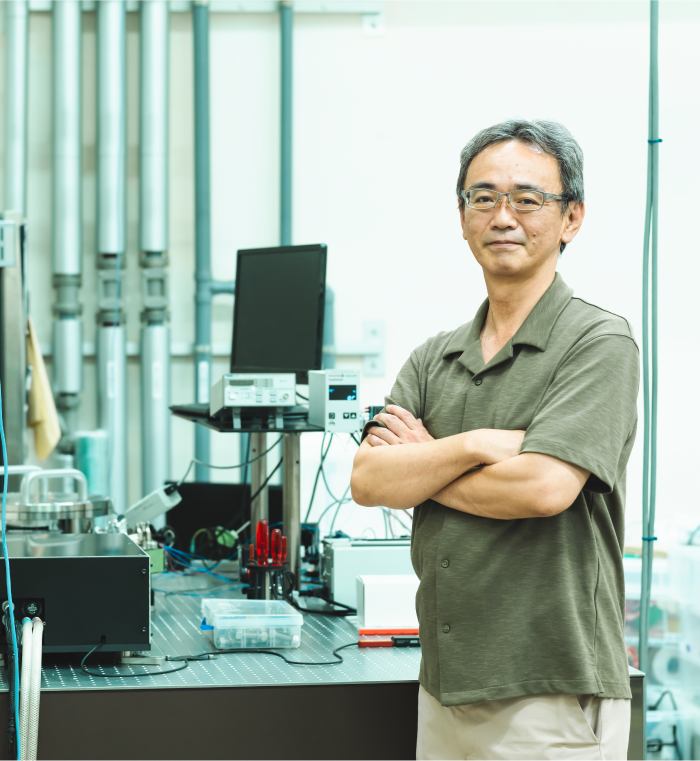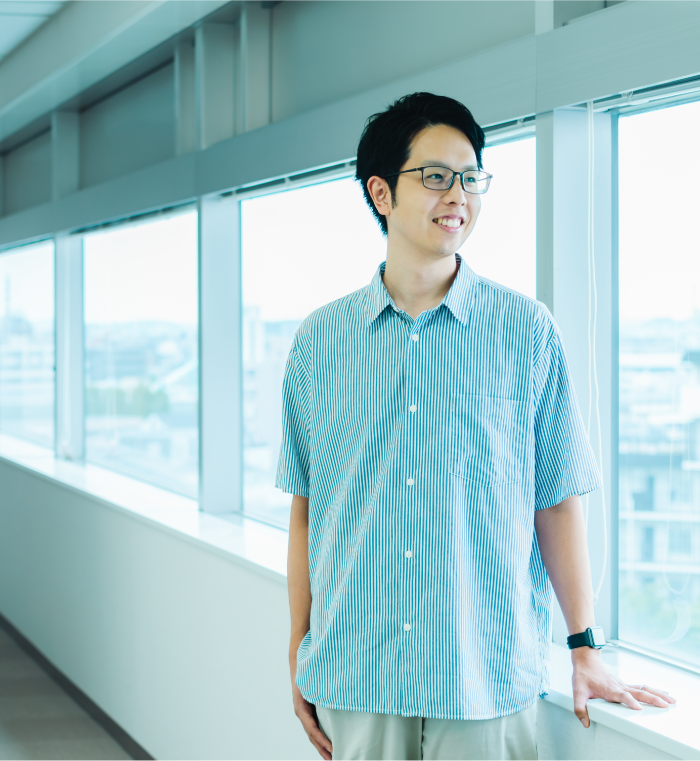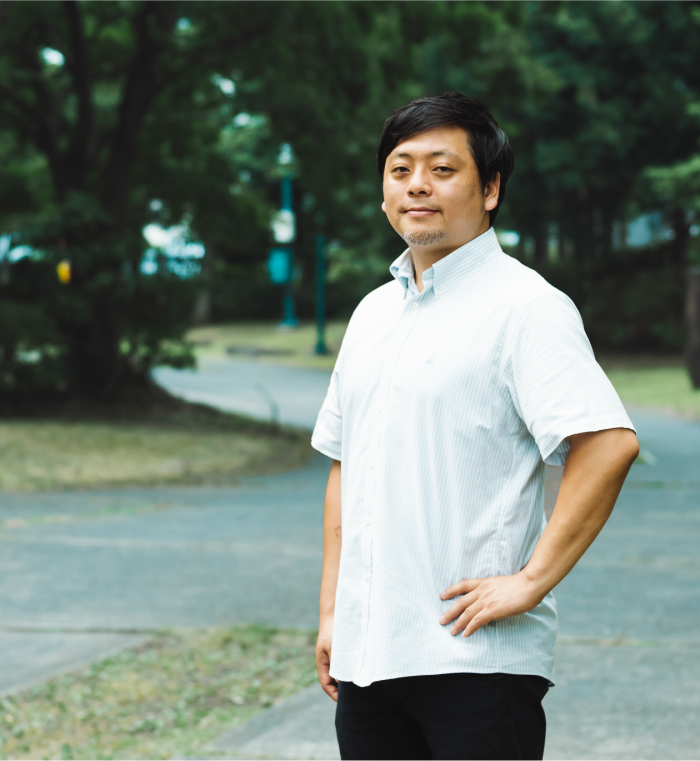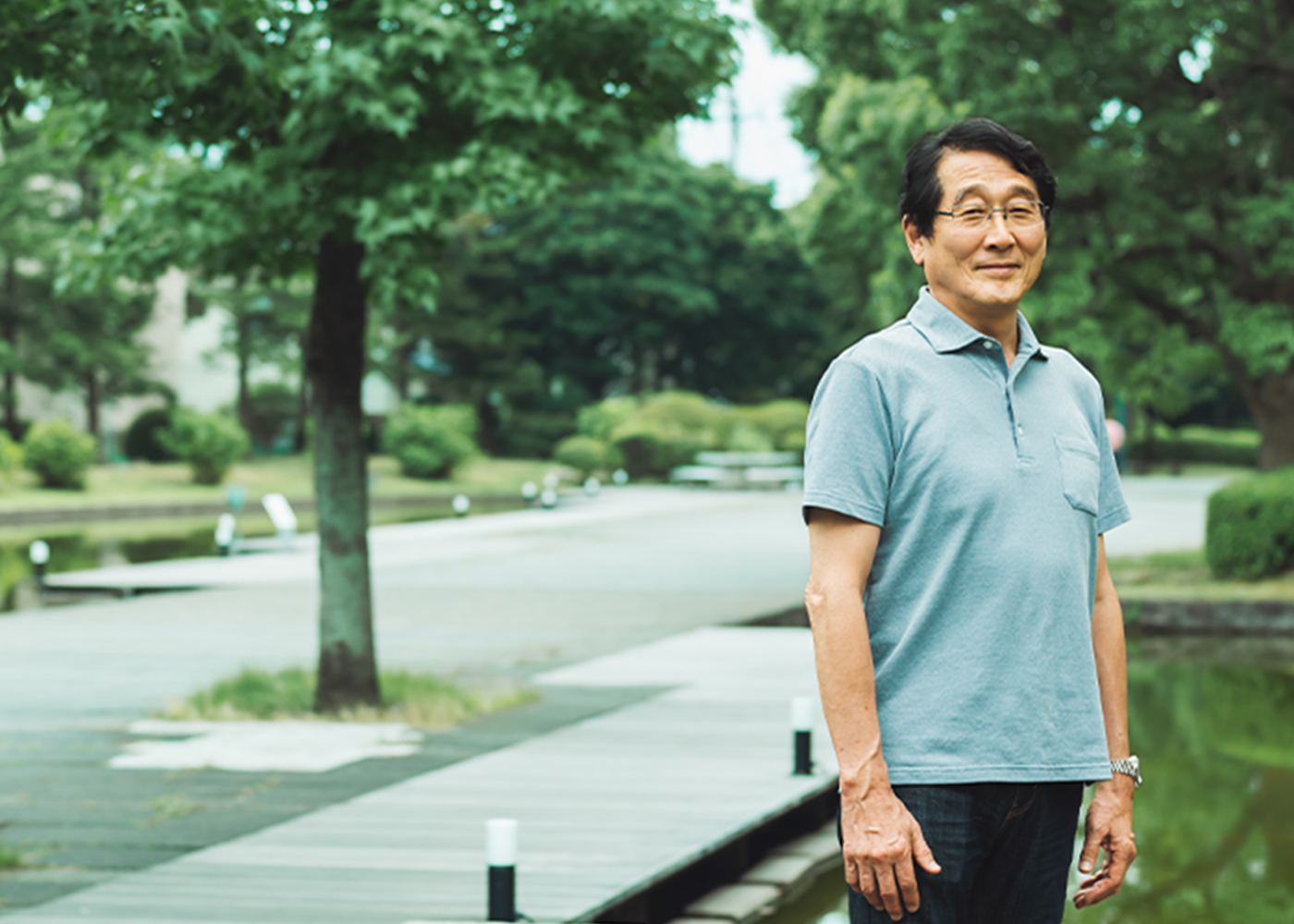
Interview
新たな夢と若手の成長
のために。
培った経験のすべてを、Orbital Lasersに注ぐ
Investing My Experience into Orbital Lasers for New Dreams and the Growth of Young Talent
平子 敬一
Keichi Hirako
技術顧問
Technical Advisor

大学・大学院にて制御工学を専攻後、大手電機メーカーに就職。人工衛星の制御系、システムなど多数の衛星開発で経験を積み、プロジェクトマネージャーも務める。その後、JAXAに入職し、小型衛星の開発に参画。それと並行して、大学・大学院で講師も務める。JAXA退職後は宇宙関連コンサルティングサービスを開始。2024年4月よりOrbital Lasers技術顧問に就任した。
After majoring in control engineering at both university and graduate school, I began my career at a major electronics manufacturer. There, I gained valuable experience in developing satellite control systems and engaging in various satellite-related projects, ultimately advancing to the role of project manager. Subsequently, I joined JAXA, where I contributed to the development of small satellites. In addition, I have served as a lecturer at several universities and graduate schools. Following my tenure at JAXA, I launched a space-related consulting service. As of April 2024, I have taken on the role of technical advisor at Orbital Lasers.

Q1. 入社以前の経歴は?
Q1. What Is Your Background Prior to Joining Orbital Lasers?
大手電機メーカーやJAXAで衛星の制御、システム設計を経験。大学講師、宇宙関連のコンサルなど、長きにわたり衛星開発に従事
I have extensive experience in satellite control and system design from my time at a major electronics manufacturer and JAXA. Additionally, I have worked as a university lecturer and a consultant in the space field.
幼い頃から飛行機やロケットがとにかく好きで、中学生の時には、身の回りにある材料で2段式ロケットを自作するほどでした。その影響もあって、大学では工学部で制御系システムを専攻。新卒入社した大手電機メーカーでも衛星開発の部署で、衛星の制御系やシステム設計を扱ってきました。その後、JAXAに転職。JAXAでは約12年にわたって2機の小型衛星開発や運用などのプロジェクト、さらにはデブリ対策の研究に携わりました。加えて、それらの経験を活かして、大学・大学院で講師を務めていた時期もあります。JAXA退職後は、宇宙関連のコンサルティングサービスで起業。まさか47年以上も衛星に関われるとは思っていませんでしたが、振り返ると、衛星開発は天職なんだろうなと感じますね。
My passion for airplanes and rockets began in childhood, exemplified by my middle school project where I built a two-stage rocket from available materials. This early interest led me to major in control systems engineering in the Faculty of Engineering at university. After graduation, I joined the satellite development department of a major electronics manufacturer, focusing on satellite control systems and system design. I later transitioned to JAXA, where I spent around 12 years working on the development and operation of two small satellites and researching debris countermeasures. During this time, I also leveraged my experience to teach at various universities and graduate schools. After retiring from JAXA, I established a space-related consulting service. Looking back, I never anticipated spending over 47 years working with satellites, but it genuinely feels like satellite development is my true calling.
Q2. Orbital Lasers に入社したキッカケは?
Q2. What prompted you to join Orbital Lasers?
レーザーによるスペースデブリ除去の有用性に賛同。
「また衛星開発に携われる」という期待感とともに、次なるステージへ
I agreed with the potential of laser-based space debris removal. With the excitement of being involved in satellite development again, I embraced a new stage in my career.
Orbital Lasers代表福島との出会いは、彼が「スカパーJSAT」に在籍していた頃でして、私がJAXAを退職してからのことです。スカパーJSATから「レーザーによるスペースデブリ除去衛星のシステム検討」のレビューを依頼されたのです。福島の提唱する手法に、大きな可能性を感じ、技術開発コンサルタントを引き請けさせてもらうことに。それが、Orbital Lasers参画に至るキッカケです。またこうして衛星開発に携われることになり、技術者として光栄ですし、宇宙空間でのレーザーの有効性を実証する日を信じて、皆で切磋琢磨する日々は、大変に充実していますね。
I met Orbital Lasers’ CEO Fukushima after I retired from JAXA when he was still working at SKY Perfect JSAT. SKY Perfect JSAT asked me to review their "laser-based space debris removal satellite system." I saw great potential in the method Fukushima proposed and decided to take on the role of technical development consultant. That was the turning point that led me to join Orbital Lasers. I feel honored as an engineer to once again be involved in satellite development, and every day is fulfilling as we work hard to prove the effectiveness of lasers in space.
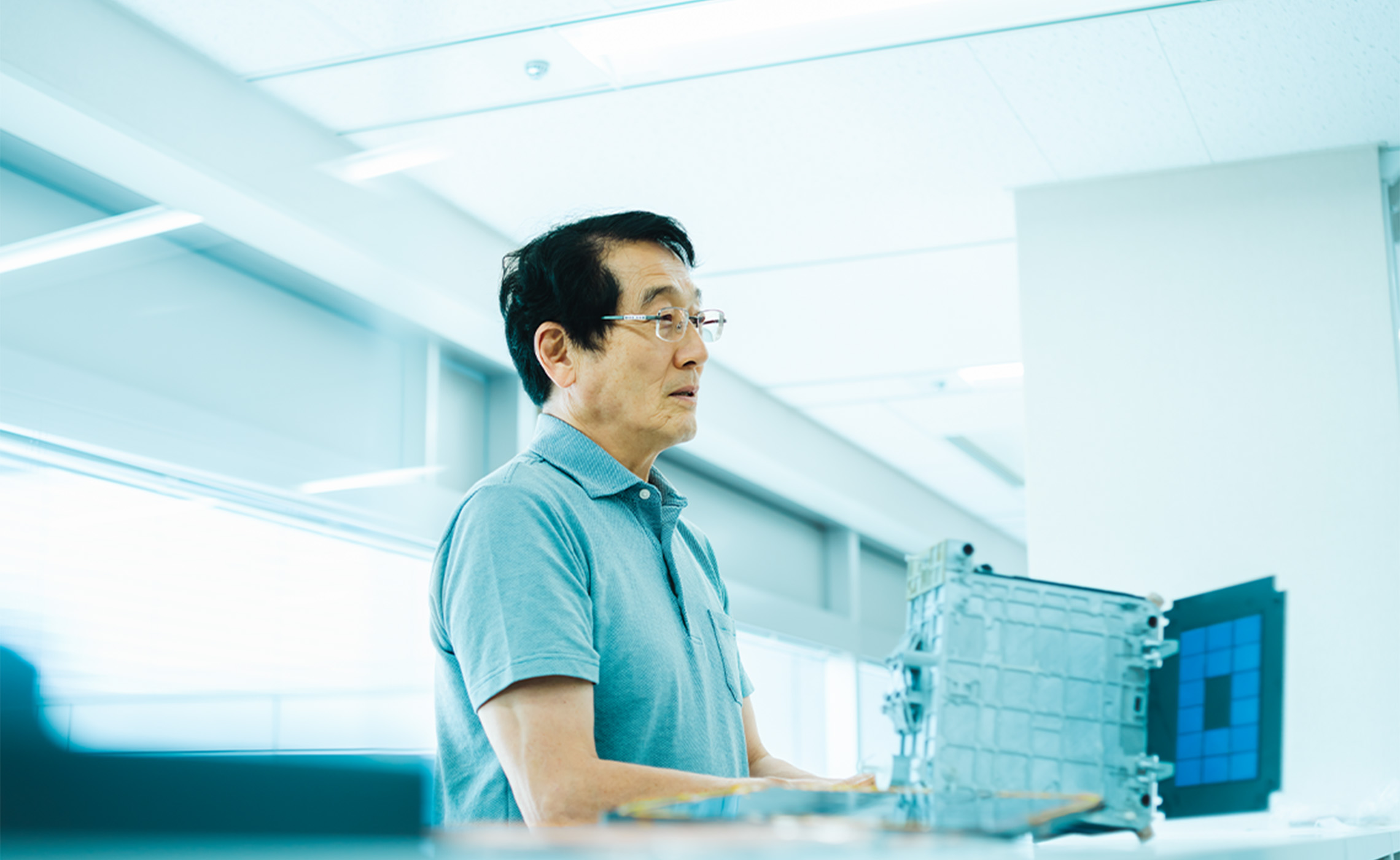
Q3. 社内の雰囲気は?
Q3. What is the atmosphere like within the company?
かつて若手技術者として、開発に没頭していた日々が蘇る。
明るく穏やかな雰囲気の中にも、挑戦への情熱が溢れている
It reminds me of my younger days as a passionate engineer. The atmosphere is bright and calm, yet brimming with passion for taking on challenges.
Orbital Lasersで過ごしていると、時折、JAXA在籍時を思い出します。当時のプロジェクトチームは、若手もベテランも一緒になって、議論を交わし、実験を重ねる日々でした。そんな当時の情熱がOrbital lasersにも満ちているように感じるんです。とくに若手たちが、熱い想いで技術開発に取り組む様子を見ると、少しでも彼らの成長のためにサポートしていきたいと感じますし、私たちベテランをいい意味で利用してもらい、多くの成功体験を積んでほしいと、そう願っているんです。もちろん私が、彼らから学ばせてもらうことも、たくさんあるのですけどね。
Working at Orbital Lasers often reminds me of my time at JAXA. Back then, young engineers and veterans alike would engage in discussions and run countless experiments together. I feel that same passion in Orbital Lasers today. When I see young engineers enthusiastically working on technology development, I’m inspired to support their growth in any way I can. I hope they will leverage us veterans and gain as many successful experiences as possible. Of course, I also learn a lot from them as well.
Q4. 現在の業務内容について
Q4. What are your current duties?
大型・小型衛星の開発・打ち上げ・運用という
経験を活かして、技術顧問として
幅広い領域でOrbital Lasersを支える
Utilizing my experience in the development, launch, and operation of large and small satellites to support Orbital Lasers in various areas as a technical advisor.
大型・小型衛星の開発・打ち上げ、運用など、これまで培った経験を活かして、Orbital Lasersでは技術顧問という立場から「衛星システムの検討」や「衛星の製造体制の構築」、「調達機器の検討」「対外調整」、さらにはデブリ除去用レーザーにおける「技術支援」や「若手への指導」など幅広い業務を担っています。私たちOrbital Lasersは、世界のベンチマークよりも10倍程度も高効率なパルスレーザー発振器の技術を有しています。近い将来、この技術の宇宙空間での安定的な運用を目指して、現在は、できる限りのサポートを行なっています。
At Orbital Lasers, I use my experience in large and small satellite development, launch, and operation to support a wide range of activities as a technical advisor. This includes satellite system planning, building manufacturing systems, evaluating procured equipment, external coordination, technical support for debris removal lasers, and mentoring younger team members. Orbital Lasers possesses technology for a pulsed laser oscillator that is about 10 times more efficient than the global benchmark. We are currently working to support the stable operation of this technology in space, aiming for future success.
Q5. どんな人と一緒に働きたいか?
Q5. What kind of people do you want to work with?
苦境に立たされた時こそ、笑顔で。
先を見通す力が、技術者としての成長を加速させる
When facing difficulties, it’s important to smile. The ability to anticipate the future accelerates an engineer’s growth.
前人未到のプロジェクトに挑むOrbital Lasersでは、しばしば前例のない課題に直面します。しかし、「困難なときこそ、笑顔で」という姿勢で、何事も楽しむ余裕が大切です。ストレスや不安にとらわれると、良いアイデアや解決策が浮かびにくくなり、悪循環に陥りがちです。今の取り組みが中長期的にどんな影響を与えるのか、また、一見無関係に思える出来事をどう関連付けるかなど、物事を深く考察することで、技術者としての成長が加速すると考えています。私自身、これまでの開発現場で「風が吹けば桶屋が儲かる」というシチュエーションを、何度も目の当たりにしてきましたからね。
At Orbital Lasers, which is taking on unprecedented projects, we often face challenges that have no prior examples. However, I believe that having the attitude of "smiling in difficult times" and finding joy in every situation is key. When overwhelmed by stress and anxiety, it’s hard to come up with good ideas or solutions, and this can lead to a negative cycle. I think that engineers grow faster when they deeply consider how current efforts will impact the long term and how seemingly unrelated events might be connected. I’ve witnessed many situations where "one thing leads to another," similar to the proverb "When the wind blows, the cooper prospers," countless times throughout my career in development.

